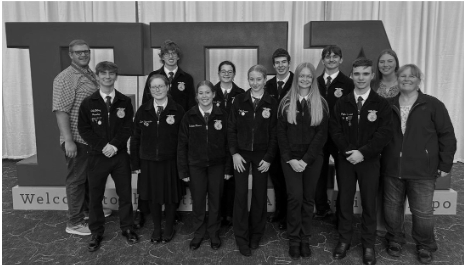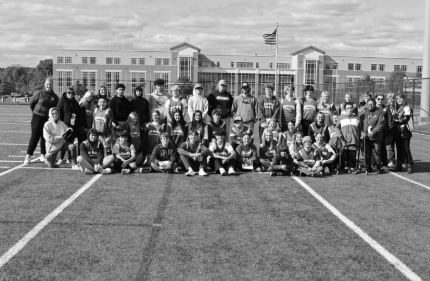What HCPS is doing in cafeterias to accommodate for allergen-prone students, staff

December 14, 2021
As a student with Celiac Disease, (an allergy with gluten), it doesn’t seem like there is enough awareness about the accommodations being made by the cafeteria staff for students and staff with allergies. The good news, there are accommodations being made. The bad news is that not everyone knows about them.
While it might be tricky to eat food from the cafeteria if you have an allergy, this does not mean that the café staff is not willing to make sure students have choices and stay safe.
Cafeteria manager Mrs. Earliene Klapka wants students to know “we sanitize everything” and that if she’s preparing food, she “first wipes down and sanitizes the table and after she’s done she re-does the same thing.” Not only do they clean before they cook but she also states that they clean in between every lunch block and every serving line.
It is great to hear how important allergen-prone students are to the people handling their food, considering that in most restaurants chefs staff usually don’t have the time nor can they find the time to do this. Cross-contamination can clearly be eliminated as a concern up in the cafeteria.
Klapka states, “when they serve food in the cafeteria they are constantly washing hands and they always wear gloves.” If a student has an allergy she says that they normally know what they can and cannot have by the time they are in high school and choose those options in the lunch line.
If a student requests the server to change their gloves in fear of cross-contamination (when someone or something touches a food that you cannot ingest and then proceeds to touch a food that you can have) Klapka says they will happily do so.
Another accommodation is that cafeteria workers have the ability to see what allergies a student has on file with the nurse. If a student does not know what they can have on the menu, they can ask the nurse for a list of acceptable foods. The cafeteria has separate options for them including, “soy milk, lactaid milk, gluten free bread.”
Klapka says that she does not know of any foods that they are planning to add to the cafeteria in terms of options for the students with allergies.
As a student with an allergy, it was absolutely overwhelming and thrilling to hear about what was happening behind the counters of the cafeteria and all of these options, however, students are not necessarily aware of them, especially the students who need them.
Klapka added that she’s “pretty sure it’s on our website; we can’t advertise it here because we don’t want the kids to feel like they stand out because they have an allergy.”
So, to all the students who suffer from a food allergy, take note: there are people in our cafeteria who are here to help. And they are doing all they can to help make your experience a good one. Take advantage of the opportunity to ask questions, to get information and to stay well.











